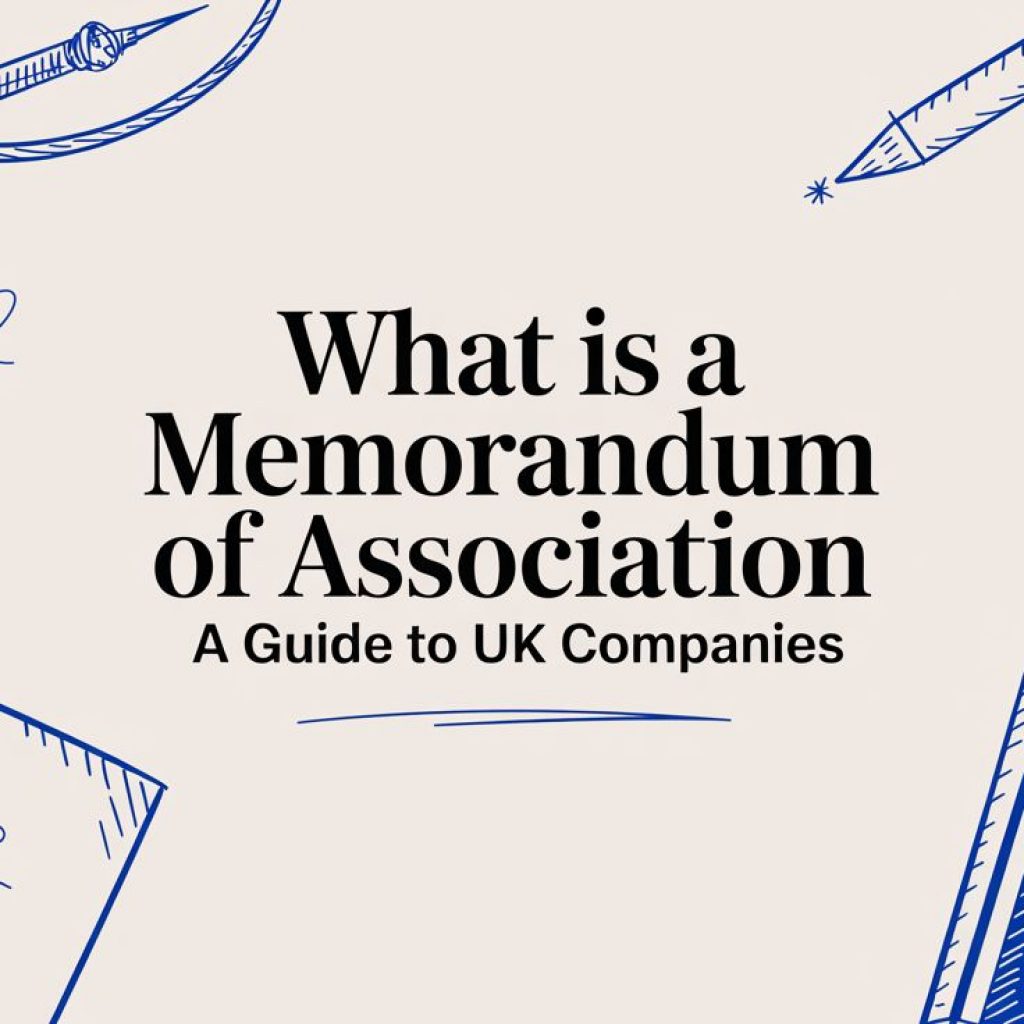Company Compliance Checklist UK
Company Compliance Checklist UK – Running a business in the UK involves far more than a great idea and a strong work ethic. It demands a rigorous, ongoing commitment to a complex web of legal and regulatory standards. From safeguarding employee wellbeing under the Health and Safety at Work Act to protecting customer data according to GDPR, compliance is the non-negotiable framework that shields your enterprise from severe penalties. Overlooking these obligations can lead to crippling fines, lasting reputational damage, and, in serious cases, director disqualification or even criminal proceedings. The sheer volume of rules can feel overwhelming for new and established businesses alike, but navigating this maze is essential for sustainable growth.
This comprehensive company compliance checklist for the UK is designed to cut through the complexity. We will break down 10 critical areas every director and business owner must master, moving beyond theory to offer actionable steps and practical examples. Forget dense legal jargon; this guide provides a clear roadmap to help you operate confidently and securely. By understanding these core duties, from Companies House filings to tax obligations, you can ensure your business is built on a solid, compliant foundation, freeing you to focus on what you do best.
1. Health and Safety at Work etc. Act 1974 (HSWA)
The Health and Safety at Work etc. Act 1974 (HSWA) is the cornerstone of UK workplace health and safety law. It places a broad, ongoing duty on employers to ensure the health, safety, and welfare of all their employees, so far as is “reasonably practicable.” This duty extends to non-employees who may be affected by the business’s activities, such as contractors, visitors, and the general public. Compliance isn’t just about avoiding fines; it’s about creating a safe, productive environment and fulfilling a fundamental legal and moral obligation.

Why it’s a critical compliance point
HSWA sets the foundation for all other specific health and safety regulations. Neglecting it exposes your business to severe penalties, including unlimited fines and imprisonment for individuals in serious cases. A proactive approach protects your team, reduces absenteeism, and enhances your company’s reputation, making it a non-negotiable part of any company compliance checklist in the UK.
Practical Implementation
- Construction: A building firm doesn’t just provide hard hats. They must conduct detailed risk assessments for each site, covering everything from working at height to vehicle movements, and provide documented safety briefings (toolbox talks) daily. For example, before starting work on scaffolding, a supervisor must check it, sign it off as safe, and ensure all workers have the correct harnesses.
- Office Environment: A tech start-up must perform Display Screen Equipment (DSE) assessments for all employees, including remote workers, to prevent musculoskeletal issues. An actionable insight is to create a simple online DSE self-assessment form that remote staff can complete annually, flagging any issues with their home setup for review.
- Manufacturing: A factory must install physical guards on machinery, implement a “lockout-tagout” procedure for maintenance to prevent accidental start-ups, and provide specific personal protective equipment (PPE) for noise or chemical exposure. A practical example is colour-coding lockout tags by department so engineers can immediately see who is working on a machine.
Actionable Tips for Compliance
- Document Everything: Create a formal Health and Safety Policy if you have five or more employees. Always document risk assessments, training records, and accident investigations. An actionable tip is to use a cloud folder accessible to managers to store these documents, ensuring they are always up-to-date and easily retrievable for an inspection.
- Appoint a Competent Person: Designate a responsible individual (or external consultant) to oversee health and safety management.
- Engage Your Team: Establish a safety committee with employee representatives to foster a culture of safety and gather valuable feedback from those on the front line.
- Regular Training: Conduct induction training for new hires and provide regular refresher courses on topics relevant to their roles, such as manual handling or first aid.
2. General Data Protection Regulation (GDPR)
The General Data Protection Regulation (GDPR), retained in UK law as the UK GDPR, governs how businesses collect, use, and store personal data. It mandates that organisations must process personal data lawfully, fairly, and transparently, ensuring it is protected against unauthorised access, loss, or destruction. The regulation applies to any company, regardless of size, that processes the personal data of UK residents. Compliance is not optional; it’s a legal requirement that demonstrates respect for individual privacy and builds customer trust.

Why it’s a critical compliance point
Non-compliance with UK GDPR can lead to staggering fines of up to £17.5 million or 4% of annual global turnover, whichever is greater. Beyond financial penalties, a data breach can cause irreparable reputational damage and erode customer loyalty. Managing data correctly is therefore a core component of any modern company compliance checklist in the UK, protecting both your customers and your business’s future.
Practical Implementation
- E-commerce: An online retailer must obtain explicit, affirmative consent before adding a customer to a marketing email list, using clear, unticked checkboxes. A practical step is to ensure the checkout process clearly separates the “accept terms and conditions” box from the “sign up for marketing” box.
- Healthcare: A private clinic must implement strict access controls to ensure only authorised medical staff can view patient records. A practical example is using role-based access control in their software, so a receptionist can only see appointment details, while a doctor can see full clinical notes.
- Marketing Agency: An agency must maintain detailed records of consent for their email marketing lists and provide a simple, one-click unsubscribe option in every communication. All data transfers must be documented and secure. An actionable insight is to perform a quarterly “consent refresh” campaign to ensure their marketing data remains accurate and legally compliant.
Actionable Tips for Compliance
- Conduct a Data Audit: Map all personal data you hold, detailing where it came from, why you have it, how long you keep it, and who has access. A practical first step is to create a simple spreadsheet with columns for: Data Type, Source, Purpose of Processing, Storage Location, and Retention Period.
- Update Privacy Notices: Your privacy policy must be clear, concise, and easily accessible. A comprehensive website privacy policy is the first step in transparent data handling.
- Establish a Breach Response Plan: Create a documented procedure for identifying, reporting, and managing a data breach, including the 72-hour notification requirement to the Information Commissioner’s Office (ICO).
- Train Your Staff: Ensure all employees understand their data protection responsibilities, from handling customer enquiries securely to recognising phishing attempts.
3. Employment Rights and Responsibilities
UK employment law is a complex framework designed to protect both employees and employers. It covers everything from the initial contract and pay to working conditions, discrimination, and the process for ending employment. For any business with staff, adhering to these regulations is fundamental. Compliance means providing written contracts, ensuring correct pay via the National Minimum/Living Wage, respecting working time limits, and handling dismissals and redundancies fairly and lawfully.
Why it’s a critical compliance point
Failure to comply with employment law can lead to costly and time-consuming employment tribunals, significant financial penalties, and severe damage to your company’s reputation. A robust understanding of your obligations is crucial for fostering a positive work environment, retaining talent, and ensuring your business operates ethically and legally. This makes it an essential part of any company compliance checklist in the UK.
Practical Implementation
- Retail: A high-street shop must structure its shift patterns to ensure staff receive their statutory rest breaks and are not forced to work beyond the 48-hour average weekly limit unless they have opted out in writing. An actionable insight is to use scheduling software that automatically flags potential breaches of the Working Time Regulations before a rota is published.
- Professional Services: A law firm must fairly consider all flexible working requests from eligible employees, following a formal statutory procedure, and only refuse them based on legitimate business grounds. For example, documenting the process, including the meeting notes and the final decision letter outlining the business reasons, is a practical way to demonstrate compliance.
- Manufacturing: A factory making staff redundant must conduct genuine and meaningful consultations with affected employees, follow a fair selection process, and provide the correct statutory redundancy pay.
- Tech Start-up: A growing tech company must ensure its recruitment process, from job adverts to interviews, is free from discrimination based on protected characteristics like age, gender, or race.
Actionable Tips for Compliance
- Issue Compliant Contracts: Provide all employees with a written statement of main terms and conditions on or before their first day of employment. An actionable tip is to create a standard contract template that has been legally reviewed, ensuring consistency for all new hires.
- Verify Payroll Accuracy: Implement robust payroll systems that track hours worked and automatically ensure compliance with the correct National Minimum or Living Wage rates.
- Develop Clear HR Policies: Create and distribute an employee handbook that clearly outlines policies on grievances, disciplinary procedures, equal opportunities, and anti-harassment.
- Train Your Managers: Ensure anyone with line management responsibility receives training on key aspects of employment law to prevent inadvertent breaches during day-to-day operations. When you’re ready to expand your team, you can learn more about finding and hiring your first employee.
4. Companies House Registration and Reporting
Registering with Companies House is the official step that brings a limited company into legal existence in the UK. Beyond this initial incorporation, there are stringent and continuous reporting obligations that every company must meet. This involves filing annual accounts and a confirmation statement, maintaining transparent records of directors and shareholders, and promptly reporting any significant changes. These duties are fundamental to corporate governance, ensuring transparency for stakeholders, creditors, and the public.
Why it’s a critical compliance point
Failure to meet Companies House deadlines can result in automatic and substantial financial penalties, which escalate the longer the filings are overdue. In severe cases, directors can face prosecution, and the company may be struck off the register, leading to its assets becoming the property of the Crown. Maintaining accurate and timely records is a core director’s duty and a non-negotiable part of any company compliance checklist in the UK.
Practical Implementation
- Small Businesses: A local bakery operating as a limited company can file “micro-entity accounts,” which have simplified reporting requirements, reducing the administrative burden while still meeting legal obligations. A practical step is to check the eligibility criteria on the GOV.UK website to confirm they qualify before their year-end.
- Investor-Backed Startups: A tech startup that has received a round of funding must meticulously update its shareholder register and file any changes in share capital (allotment of shares) with Companies House to reflect the new ownership structure. An actionable insight is to complete the SH01 form (Return of allotment of shares) immediately after the investment funds are received to avoid delays.
- Family Businesses: A multi-generational family business must keep its register of “persons with significant control” (PSCs) completely up-to-date, accurately reflecting which family members hold significant influence or ownership.
Actionable Tips for Compliance
- Create a Filing Calendar: Immediately upon incorporation, set calendar reminders for your annual accounts and confirmation statement deadlines to avoid any last-minute rush. For example, if your year-end is 31st March, set a reminder for your confirmation statement in March and another for your accounts deadline on 31st December.
- Use the WebFiling Service: File documents online via the Companies House WebFiling service. It is cheaper, faster, and provides an immediate acknowledgement of receipt.
- Maintain Organised Records: Keep a digital or physical folder with all director, shareholder, and PSC information. Update it immediately when changes occur, such as a change of address.
- Know Your Deadlines: Remember that annual accounts are typically due nine months after your company’s financial year-end, and the confirmation statement is due annually.
5. Tax Compliance and National Insurance
Tax compliance involves meeting all obligations set by HMRC, including Corporation Tax, VAT, Income Tax through PAYE, and National Insurance contributions. It is a fundamental responsibility for every UK business, from sole traders to large corporations. This means registering for the correct taxes, keeping meticulous records, filing accurate returns by statutory deadlines, and making payments on time. Failure to comply can lead to significant financial penalties, interest charges, and stressful investigations.
Why it’s a critical compliance point
Managing tax obligations correctly is crucial for financial stability and legal standing. HMRC has extensive powers to investigate non-compliance, and penalties can cripple a growing business. Proactive tax management not only prevents legal trouble but also allows for effective financial planning and cash flow management. It is a non-negotiable element of any company compliance checklist in the UK, safeguarding your business’s reputation and long-term viability.
Practical Implementation
- E-commerce Business: An online store selling goods internationally must correctly register for VAT in the UK, charge the right amount on sales, and navigate the complex rules for VAT on imports and exports to stay compliant. A practical example is using accounting software that automatically applies the correct VAT rate based on the customer’s location and the type of product sold.
- Limited Company: A marketing agency operating as a limited company must calculate its profits annually, file a Company Tax Return (CT600), and pay the correct amount of Corporation Tax within nine months and one day of its accounting period end. An actionable insight is to make interim payments towards their tax bill throughout the year to avoid a large one-off payment.
- Construction Agency: An employment agency supplying subcontractors must operate the Construction Industry Scheme (CIS), verifying workers with HMRC and deducting the correct amount of tax from their payments before paying them.
Actionable Tips for Compliance
- Use Accounting Software: Implement accounting software from day one to track all income and expenses, simplifying tax return preparation and making your records compliant with Making Tax Digital rules.
- Maintain Records: Legally, you must keep all business records, such as receipts and invoices, for at least six years after the end of the relevant tax year. An actionable tip is to scan all paper receipts and store them in a dedicated cloud folder to prevent loss or damage.
- Meet Deadlines: Diarise key dates. For Self Assessment, the online filing deadline is 31st January. For more information, you can explore a detailed guide to Corporation Tax.
- Budget for Tax: A good rule of thumb is to set aside 20-25% of your income in a separate bank account specifically for your future tax liability.
6. Environmental Compliance and Waste Management
Environmental legislation in the UK places a significant ‘duty of care’ on businesses to manage their environmental impact responsibly. This encompasses everything from how waste is stored and disposed of to controlling pollution and obtaining the correct permits for specific operations. Compliance involves managing waste correctly, preventing land, water, and air pollution, and for larger companies, reporting on environmental performance. Neglecting these duties can lead to substantial fines, cleanup costs, and serious reputational damage.
Why it’s a critical compliance point
Environmental regulations are becoming increasingly stringent as the UK moves towards its net-zero targets. Non-compliance can result in enforcement action from bodies like the Environment Agency, including fixed penalty notices or even prosecution for serious breaches. A proactive approach not only ensures you meet legal standards but also improves efficiency, reduces costs through better resource management, and appeals to environmentally conscious consumers, forming a key part of any modern company compliance checklist in the UK.
Practical Implementation
- Manufacturing: A food production plant must separate organic waste from general and recyclable waste. They must also hold the correct environmental permit if their operations release specific emissions into the atmosphere or discharge trade effluent into the sewer system. A practical step is to perform an annual review of their operations against their permit conditions to ensure they remain compliant.
- Retail: A clothing store must ensure its packaging supplier is compliant with packaging waste regulations. They must also have a contract with a licensed waste carrier to dispose of cardboard, plastics, and general business waste, keeping transfer notes as proof. An actionable insight is to request a copy of their waste carrier’s license annually to ensure it remains valid.
- Construction: A building firm managing a demolition site must correctly identify, segregate, and dispose of hazardous waste like asbestos according to strict regulations, using specialist licensed contractors and maintaining comprehensive records of its movement and disposal.
Actionable Tips for Compliance
- Conduct an Environmental Audit: Regularly assess your operations to identify waste streams, resource usage, and potential pollution risks. Start by simply walking through your premises and noting down everything you throw away and how it is disposed of.
- Implement Segregation: Set up clearly labelled bins for different types of waste (e.g., general, mixed recycling, food, glass) to maximise recycling and minimise landfill costs.
- Verify Your Contractors: Always use registered waste carriers and check their credentials on the Environment Agency’s public register. Keep copies of all waste transfer notes for at least two years.
- Develop a Policy: Create a formal environmental policy outlining your commitment and procedures. Provide training to all staff to ensure they understand their responsibilities in waste handling and pollution prevention.
7. Consumer Protection and Trading Standards
Consumer protection laws, primarily governed by the Consumer Rights Act 2015, are designed to ensure that businesses treat their customers fairly. These regulations cover everything from the accuracy of product descriptions and transparent pricing to the quality of goods and services provided. Compliance means providing clear terms, honouring consumer rights like returns and refunds, and avoiding misleading advertising or unfair commercial practices. It builds trust, encourages repeat business, and protects your company from costly legal challenges and reputational damage.
Why it’s a critical compliance point
Failing to comply with consumer protection laws can lead to enforcement action from Trading Standards, significant fines, and civil claims from customers. In a competitive market, a reputation for poor service or misleading practices can be devastating. Adhering to these standards is a fundamental part of any company compliance checklist in the UK, demonstrating integrity and building a loyal customer base.
Practical Implementation
- E-commerce: An online clothing retailer must clearly state its 14-day cancellation policy for distance selling, provide accurate size guides and material compositions, and process refunds for returned goods within the legally required timeframe. An actionable tip is to create an easy-to-find “Returns” page on their website that explains the process in simple steps.
- Subscription Service: A meal-kit delivery company must be upfront about its auto-renewal terms, making it easy for customers to cancel their subscription. A practical example of this is sending an email reminder three days before the renewal date, which includes a direct link to the cancellation page.
- Service Provider: A marketing agency must provide a clear contract outlining the scope of work, deliverables, and payment terms, ensuring services are performed with reasonable care and skill as promised.
Actionable Tips for Compliance
- Review Your Marketing: Regularly audit all advertising, social media posts, and product descriptions to ensure they are accurate, truthful, and not misleading. For example, if you advertise a “sale,” ensure the item was sold at a higher price for a reasonable period beforehand.
- Create Clear Terms & Conditions: Draft plain-English terms of sale that cover payment, delivery, returns, and your complaints procedure. Make them easily accessible to customers before a purchase.
- Train Your Team: Ensure all customer-facing staff understand their obligations under the Consumer Rights Act, particularly regarding returns, repairs, and replacements.
- Document Everything: Keep records of product safety certifications, customer complaints, and how they were resolved. This documentation is vital if a dispute arises.
8. Data Security and Cybersecurity Requirements
In the digital age, securing business and customer data is not just good practice; it’s a legal imperative. UK companies must implement appropriate technical and organisational measures to protect sensitive information from unauthorised access, breaches, and cyber attacks. Beyond GDPR, regulations like the Network and Information Systems (NIS) Regulations apply to critical infrastructure operators, while schemes like Cyber Essentials provide a government-backed framework for fundamental security controls applicable to all businesses.

Why it’s a critical compliance point
A data breach can lead to devastating financial penalties from the Information Commissioner’s Office (ICO), significant reputational damage, and loss of customer trust. Proactive cybersecurity measures are essential for business continuity and protecting intellectual property. Demonstrating strong data security is a key part of any modern company compliance checklist in the UK, often being a prerequisite for winning contracts, especially with government bodies.
Practical Implementation
- Financial Services: A fintech firm must comply with Payment Card Industry Data Security Standard (PCI-DSS) requirements, using encryption and network segmentation to protect cardholder data during transactions and storage. A practical example is ensuring their payment terminals are physically secure and regularly inspected for tampering.
- Healthcare: A private clinic must secure electronic patient records using end-to-end encryption for all communications and implement strict access controls to ensure only authorised medical staff can view patient data.
- Retail: An e-commerce business must secure its website with SSL certificates, use secure payment gateways, and ensure its customer database is protected against common attacks like SQL injection. An actionable insight is to subscribe to a vulnerability scanning service that regularly checks their website for security weaknesses.
Actionable Tips for Compliance
- Adopt a Baseline: Implement the government’s Cyber Essentials framework. It provides a clear and achievable baseline for cybersecurity, covering firewalls, secure configuration, access control, malware protection, and patch management.
- Plan for Incidents: Establish and regularly test a Cyber Incident Response Plan. This ensures you have a clear procedure for identifying, containing, and recovering from a breach, minimising potential damage. A simple first step is to create a contact list of key personnel to notify in case of a breach.
- Train Your People: Conduct regular security awareness training for all staff. Your employees are your first line of defence against phishing attacks and social engineering.
- Strengthen Access: Enforce the use of multi-factor authentication (MFA) across all critical systems, including email, cloud services, and administrative accounts, to add a crucial layer of security.
9. Anti-Money Laundering (AML) and Know Your Customer (KYC)
Anti-Money Laundering (AML) regulations are a set of laws and procedures designed to prevent illegally obtained funds from being disguised as legitimate income. A core component of this is Know Your Customer (KYC), which involves verifying the identity, suitability, and risks involved with maintaining a business relationship. For businesses in regulated sectors like finance, legal services, accountancy, and real estate, these procedures are not optional; they are a legal requirement to combat financial crime and terrorism financing.
Why it’s a critical compliance point
Failure to comply with AML regulations can lead to severe consequences, including unlimited fines, reputational damage, and even prison sentences for directors. The Proceeds of Crime Act 2002 places a legal obligation on regulated businesses to report suspicious activity. A robust AML framework protects your business from being exploited by criminals, safeguards the integrity of the UK’s financial system, and is a vital part of any comprehensive company compliance checklist in the UK.
Practical Implementation
- Accountancy Firm: An accounting practice must perform due diligence on all new clients, verifying the identity of directors and ultimate beneficial owners (UBOs) before providing services. A practical step is to use certified electronic ID verification software to check passports and driving licenses against official databases.
- Estate Agent: When selling a high-value property, an estate agent is required to identify both the buyer and seller, verifying their identities and conducting checks on the source of funds used for the purchase. An actionable insight is asking for the last three months of bank statements to see where the deposit funds originated.
- Fintech App: A payment processing start-up must integrate automated identity verification into its onboarding process and implement transaction monitoring software that flags payments exceeding certain thresholds or exhibiting unusual patterns.
Actionable Tips for Compliance
- Appoint an MLRO: Designate a senior individual as the Money Laundering Reporting Officer (MLRO) who is responsible for overseeing AML compliance and reporting suspicious activity.
- Conduct a Risk Assessment: Formally assess your business’s exposure to money laundering risks and tailor your AML policies and procedures accordingly. For example, classify clients as low, medium, or high risk based on their industry and location.
- Implement Customer Due Diligence (CDD): Establish clear procedures for identifying and verifying clients before entering a business relationship. This includes understanding the ownership and control structure of corporate clients.
- Provide Regular Training: Ensure all relevant staff are trained to recognise and deal with transactions that may be related to money laundering. Document all training sessions.
10. Equality, Diversity and Non-Discrimination Compliance
The Equality Act 2010 is the UK’s primary anti-discrimination law, legally obligating businesses to ensure equal treatment and prevent discrimination. This protection covers nine “protected characteristics”: age, disability, gender reassignment, marriage and civil partnership, pregnancy and maternity, race, religion or belief, sex, and sexual orientation. The Act’s reach is extensive, covering all aspects of employment from recruitment and pay to training, promotion, and dismissal. Compliance is about fostering an inclusive, fair, and respectful workplace culture where all employees can thrive.
Why it’s a critical compliance point
Failing to comply with the Equality Act 2010 can lead to costly and reputation-damaging employment tribunals, with no cap on compensation for discrimination claims. Beyond the legal risks, a diverse and inclusive workplace is proven to be more innovative, productive, and attractive to top talent. Properly managing this area is a core component of any robust company compliance checklist in the UK, demonstrating a commitment to ethical and modern business practices.
Practical Implementation
- Financial Services: A bank implements mandatory unconscious bias training for all hiring managers and uses anonymised CVs during the initial screening process to reduce bias in recruitment. An actionable insight is to use software that redacts names and university dates from CVs before they are reviewed.
- Retail: A large retailer creates a clear policy for accommodating religious practices, such as providing prayer rooms and flexible scheduling during religious festivals like Ramadan or Diwali.
- Manufacturing: A factory makes reasonable adjustments for a disabled employee by providing a specialised ergonomic chair and modifying their workstation to ensure it is fully accessible, allowing them to perform their role safely and effectively. A practical step is to conduct a specific workplace needs assessment for any employee who declares a disability.
Actionable Tips for Compliance
- Develop Clear Policies: Create, distribute, and regularly review comprehensive anti-discrimination, anti-harassment, and equal opportunity policies.
- Review Recruitment Processes: Scrutinise job descriptions for biased language and ensure interview questions focus solely on a candidate’s ability to perform the job. Use structured interview panels to ensure consistency.
- Provide Regular Training: Implement ongoing diversity, inclusion, and unconscious bias training for all staff, with specific modules for managers and leadership.
- Monitor Pay and Promotions: If you have 250 or more employees, you must publish a gender pay gap report. All businesses should ensure pay scales and promotion criteria are transparent and equitable.
UK Company Compliance: 10-Point Checklist Comparison
| Policy / Regulation | Implementation complexity | Resource requirements | Expected outcomes | Ideal use cases | Key advantages |
|---|---|---|---|---|---|
| Health and Safety at Work etc. Act 1974 (HSWA) | Medium — formal policies, risk assessments and competent persons | Ongoing investment in safety staff, training, PPE and monitoring | Fewer workplace injuries, legal compliance, lower liability | All workplaces; essential for construction, manufacturing, labs | Protects workforce; reduces accidents and downtime; regulatory compliance |
| General Data Protection Regulation (GDPR) | High — legal, technical controls, DPIAs and breach processes | High — DPO/legal support, security measures, consent systems, training | Stronger data protection, customer trust, reduced breach risk | Any organisation processing personal data (e-commerce, healthcare, tech) | Builds trust; avoids large fines; enforces privacy by design |
| Employment Rights and Responsibilities | Medium — contracts, policies, working time and dismissal procedures | Medium — HR expertise, payroll systems, documentation and training | Fair employment practices, reduced tribunals, improved retention | All employers; especially medium/large firms and those with shift work | Reduces disputes; improves transparency and employee morale |
| Companies House Registration and Reporting | Low–Medium — registration and routine annual filings | Low–Medium — accounting support, filing fees, record maintenance | Legal corporate status, transparency, access to finance | Incorporated companies and startups seeking credibility | Enables limited liability; builds credibility; required for banking/contracts |
| Tax Compliance and National Insurance | High — multiple tax regimes, RTI and VAT obligations | High — accountants, payroll systems, cash flow for taxes, record-keeping | Correct tax payments, avoided penalties, eligible reliefs | All businesses and self-employed persons | Protects from prosecution; enables tax relief claims and stable HMRC relations |
| Environmental Compliance and Waste Management | Medium–High — permitting, audits, waste duty and reporting | Medium — waste services, permits, monitoring equipment, training | Reduced pollution risk, improved ESG profile, cost savings via efficiency | Manufacturing, construction, retailers, food and tech companies | Lowers environmental risk; improves reputation and investor appeal |
| Consumer Protection and Trading Standards | Medium — product safety, accurate marketing and returns processes | Medium — legal review, customer service, product testing and policies | Fewer complaints, consumer trust, compliance with trading law | Retailers, e-commerce platforms, subscription and service providers | Builds customer trust; reduces refund disputes and enforcement risk |
| Data Security and Cybersecurity Requirements | High — technical controls, monitoring, incident response | High — security tools, specialist staff, ongoing patching and tests | Reduced breaches, business continuity, compliance with security standards | Any organisation handling sensitive data; critical for finance/healthcare | Reduces cyber risk; may lower insurance costs; supports regulatory compliance |
| Anti-Money Laundering (AML) and Know Your Customer (KYC) | High — CDD/EDD, transaction monitoring and SARs processes | High — compliance officers (MLRO), verification software, monitoring systems | Reduced money-laundering risk, maintained banking relationships, legal protection | Financial services, estate agents, casinos, accountants, payment firms | Protects from criminal liability; preserves financial sector access |
| Equality, Diversity and Non-Discrimination Compliance | Medium — policies, reporting, reasonable adjustments and training | Medium — D&I initiatives, training, monitoring and possible adjustments | More inclusive workplace, reduced discrimination claims, better retention | All employers; essential for larger organisations and public sector | Attracts diverse talent; improves culture and reduces tribunal risk |
From Checklist to Culture: Embedding Compliance in Your Business
Navigating the landscape of UK business regulations can feel like an intricate puzzle. From the foundational requirements of Companies House and HMRC to the nuanced obligations of GDPR, consumer protection, and health and safety, the responsibilities are extensive. This company compliance checklist for the UK has provided a comprehensive roadmap, breaking down ten critical areas into manageable, actionable steps. We’ve explored everything from annual filings and tax deadlines to creating a safe workplace and protecting customer data.
However, the most crucial takeaway is that compliance is not a static, one-time task. Treating this checklist as a document to be completed and filed away is a significant misstep. True, sustainable compliance is a dynamic, living process that must be woven into the very fabric of your company’s daily operations and long-term strategy. It’s about moving beyond box-ticking and fostering a culture where ethical and legal responsibilities are understood, respected, and prioritised by every member of your team.
Actionable Next Steps: Making Compliance an Ongoing Process
To transform this checklist from a passive guide into an active framework for your business, consider these immediate next steps:
- Schedule a Compliance Audit: Set a specific date within the next quarter to conduct an internal review. Use the points in this article as your audit agenda. Go through each area-from data protection protocols to employment contracts-and honestly assess where you stand.
- Create a Compliance Calendar: Don’t rely on memory for critical deadlines. Use a digital calendar to map out your entire year of compliance obligations. Include reminders for your Confirmation Statement, annual accounts, Corporation Tax payments, VAT returns, and policy review dates. For example, set a recurring annual reminder for 1st April to review your Health and Safety policy.
- Assign Clear Ownership: Compliance is a team sport, but every play needs a captain. Assign specific compliance areas to individuals or departments. For instance, your marketing lead could be responsible for ensuring all campaigns adhere to consumer protection standards, while your HR manager owns employment law and equality compliance. This creates accountability and ensures nothing falls through the cracks.
- Implement Staff Training: Organise regular training sessions. A bi-annual GDPR refresher or an annual health and safety briefing keeps these crucial topics front of mind and ensures new starters are brought up to speed quickly. Documenting this training also provides a vital record of your commitment to compliance.
Ultimately, mastering your obligations is about more than just avoiding fines or penalties. It is the foundation upon which a resilient, reputable, and trustworthy business is built. A strong compliance posture enhances your brand’s credibility with customers, attracts top talent, and creates a stable platform for sustainable growth. By embedding these principles into your culture, you are not just meeting legal requirements; you are investing in the long-term success and integrity of your enterprise.
Navigating the administrative side of UK company compliance can be complex and time-consuming. Let Acorn Business Solutions handle the essentials, from providing a registered office address to managing your Companies House filings, so you can focus on building a great business. Explore our services at Acorn Business Solutions to see how we can simplify your compliance journey today.






